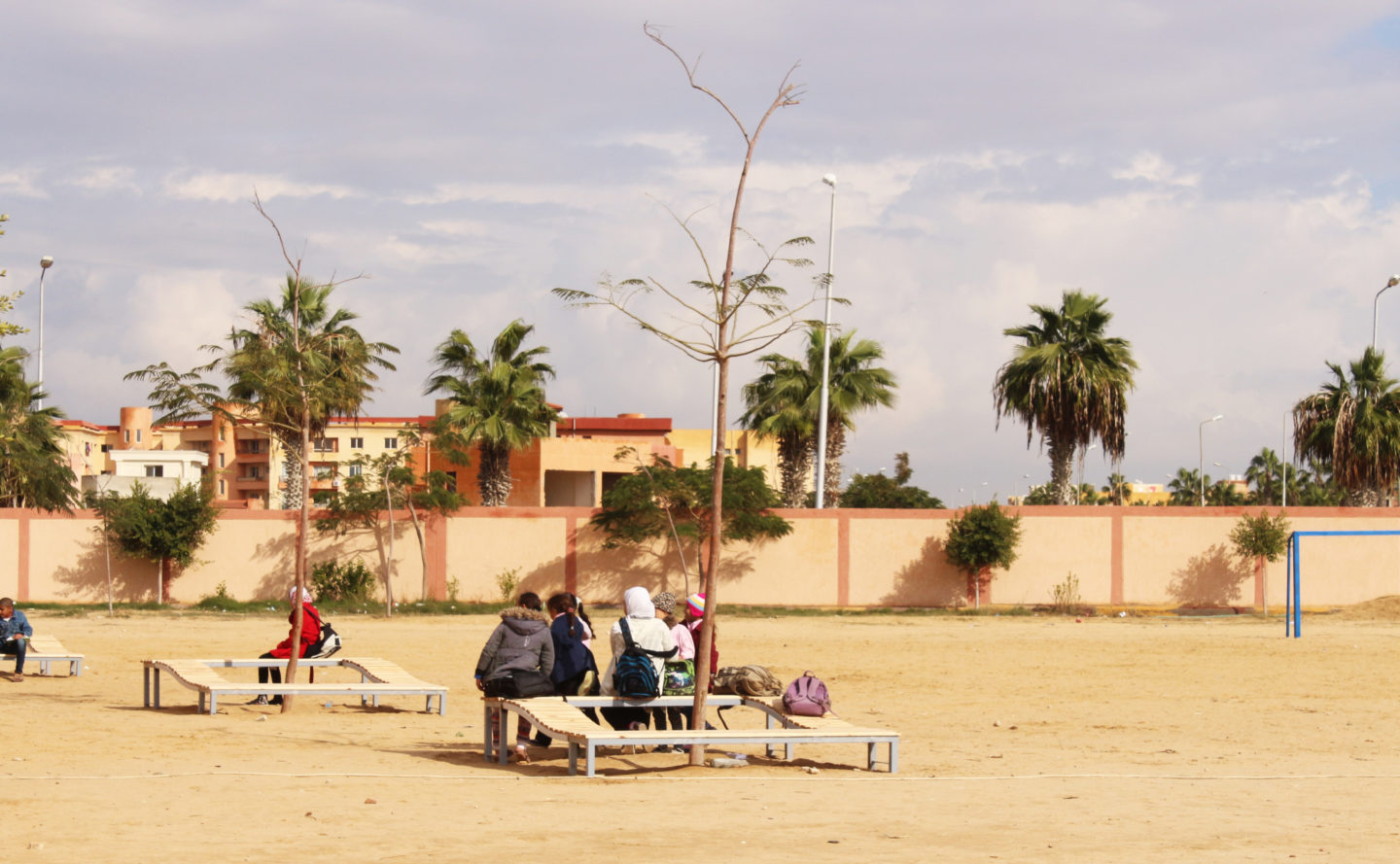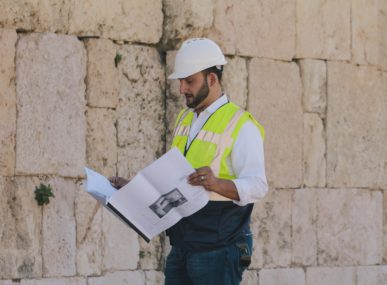Children and refugees receive special focus from Ecumene Studio, which always aims to raise living standards in vulnerable communities. In 2015, designers upgraded a public healthcare center, kindergarten, and local NGO facility in El Obour City, Egypt. The initiative deliberately built public spaces for Syrian immigrants — and especially children — to share with their Egyptian neighbors.
On other projects, Ecumene Studio has joined cutting-edge innovators in driving the future of sustainable design. For example, the team assisted Dr Marwa Debaieh with the design and construction of a Trombe wall for an ecolodge in Saint Catherine, Egypt. This technique allows buildings to accumulate solar heat passively, reducing the need for heaters and air-conditioners.
Ecumene Studio’s philosophy of sustainability also embraces historical building principles. Over the past two years, Ben Othmane and her team have facilitated conferences in Tunis, where young locals collaborate on making the city’s ancient medina into a more inclusive space. Back in Egypt, Ecumene Studio has run workshops in the oasis town of Siwa to discuss preservation of the area’s architectural heritage.






